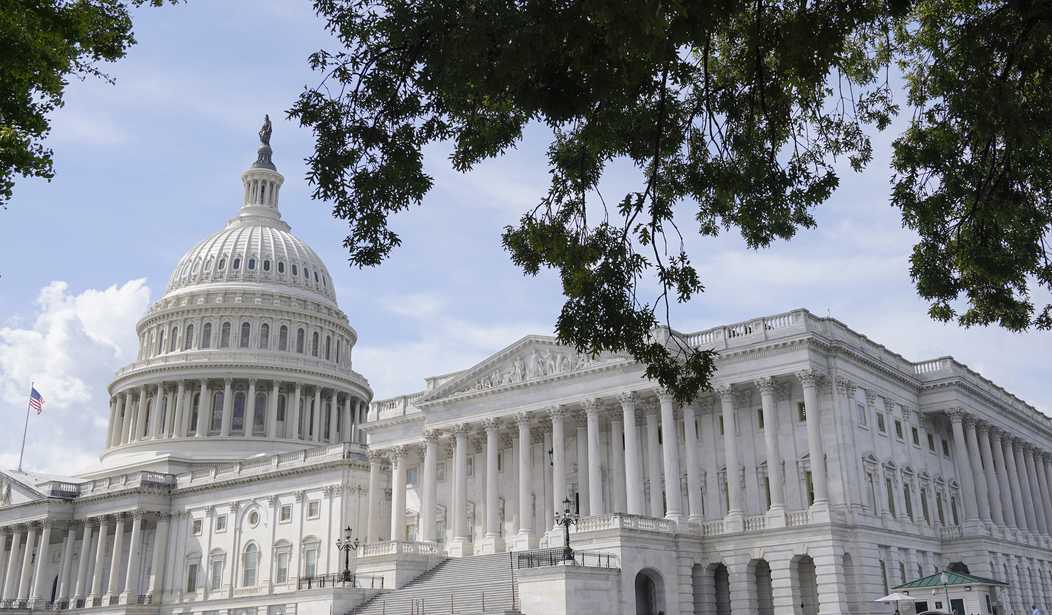Authoritarian leftists are constantly pushing for new ways to expand the power of the government. They insist that doing so will allow the state to take more of a role in benefiting the public.
However, while they have had much success in fattening up the state, they have not yet been able to grow the state as much as they have wanted because of a pesky little hindrance called the United States Constitution, which was created to limit the state’s activities.
Progressives want to change that.
Erwin Chemerinsky, the dean of the UC Berkeley School of Law, wrote a book highlighted in The New Yorker that argues for scrapping the Constitution and starting over with a legal system that would empower the federal government to intrude even further into everyday life.
In the book, titled “No Democracy Lasts Forever: How the Constitution Threatens the United States,” Chemerinsky delivers a scathing critique of the U.S. Constitution, arguing that it has become more of a hindrance than a safeguard for Americans.
At the heart of Chemerinsky’s criticism is the difficult process of amending the Constitution. He argues that the framers went “too far in preventing amendments,” which leaves Americans living under rules that make it harder for the state to address pressing political issues.
In his view, the difficulty involved in adapting has led to minority rule through mechanisms such as the Electoral College. The Constitution’s “very existence as a largely unchanged document has become a sledgehammer wielded by a minority to prop up a system that engenders polarization and festering national discord,” according to the author.
As an example, Chemerinsky refers to how a president can win an election without the popular vote. “In theory, states that are home to only twenty-two percent of the country’s population can choose the president,” he complains.
The author also targets the Supreme Court, which is supposed to be the “ultimate authority on the ultimate authority” and is comprised of unelected justices who wield significant influence over the country’s laws and policies.
Chemerinsky also looks at the makeup of the Senate, noting that smaller states with significantly fewer residents than other states have the same level of representation in the upper chamber. “California’s population is now sixty-eight times as large as Wyoming’s. Yet they have equal representation in the Senate,” he points out.
The author complains that the current Constitution makes it difficult to enact major reforms, such as eliminating the filibuster and partisan gerrymandering. Instead of arguing for changing the Constitution, he seeks to scrap the document altogether. “Let’s start the whole thing over from the top,” he urges, arguing that the U.S. needs a fresh set of rules to navigate the challenges of the 21st century.
To a progressive, this sounds like a wonderful idea. After all, making it easier for the government to pass laws would then mean that the state could more easily address problems Americans are facing, right?
This only sounds good to someone who trusts the government. For those who don’t accept the state as their lord and savior, it sounds absolutely terrifying. This is why the framers deliberately set up a system ensuring that the process for making law and passing amendments was slow, arduous, and difficult, as Supreme Court Justice Neil Gorsuch explains in his book, “Over Ruled: The Human Toll of Too Much Law”:
Making new laws was supposed to be a difficult business. As [James] Madison saw it, by requiring such a long and deliberative process, one so dependent on consensus, the Constitution would ensure that any new law—any new restriction on liberty—enjoys wide social acceptance, profits from an array of views during its consideration, and as a result proves more stable over time. The need for compromise inherent in the design also aimed to protect minorities by ensuring that their views and voices and votes couldn’t be ignored.
Gorsuch continues:
For Madison, down any other path lay “calamitous” risks. In governments where lawmaking is easy, he wrote, laws can quickly become “so voluminous that they cannot be read, or so incoherent that they cannot be understood,” and they may “undergo such incessant changes that no man, who knows what the law is today, can guess what it will be tomorrow.”
Chemerinsky complains about the minority being able to influence the trajectory of the federal government. But, the framers sought to protect the minority from the tyranny of the majority. The system is supposed to prevent a temporary majority from using the force of government to impose its will on the minority. If laws could be easily passed or changed, they could, and would, threaten the rights of minority groups. States like California and New York should not be able to exert their will on states like New Hampshire and Iowa.
Moreover, making it difficult to pass laws forces lawmakers to thoroughly debate and refine proposed legislation. Even under this system, our nation has a metric buttload of laws that result in infringements on our rights. How much worse would this be if folks like Chemerinsky got their way?
The idea behind a limited government is that individuals should be the first to address problems in their local communities and states. We are the ones responsible for ensuring the well-being of society – not some bloated, distant centralized power telling the rest of us what to do under threat of violence.
To put it simply, our federal government already has far too much power. Giving it even more would be a recipe for disaster. Instead of trying to feed the beast, perhaps it is better to put it on a diet.













